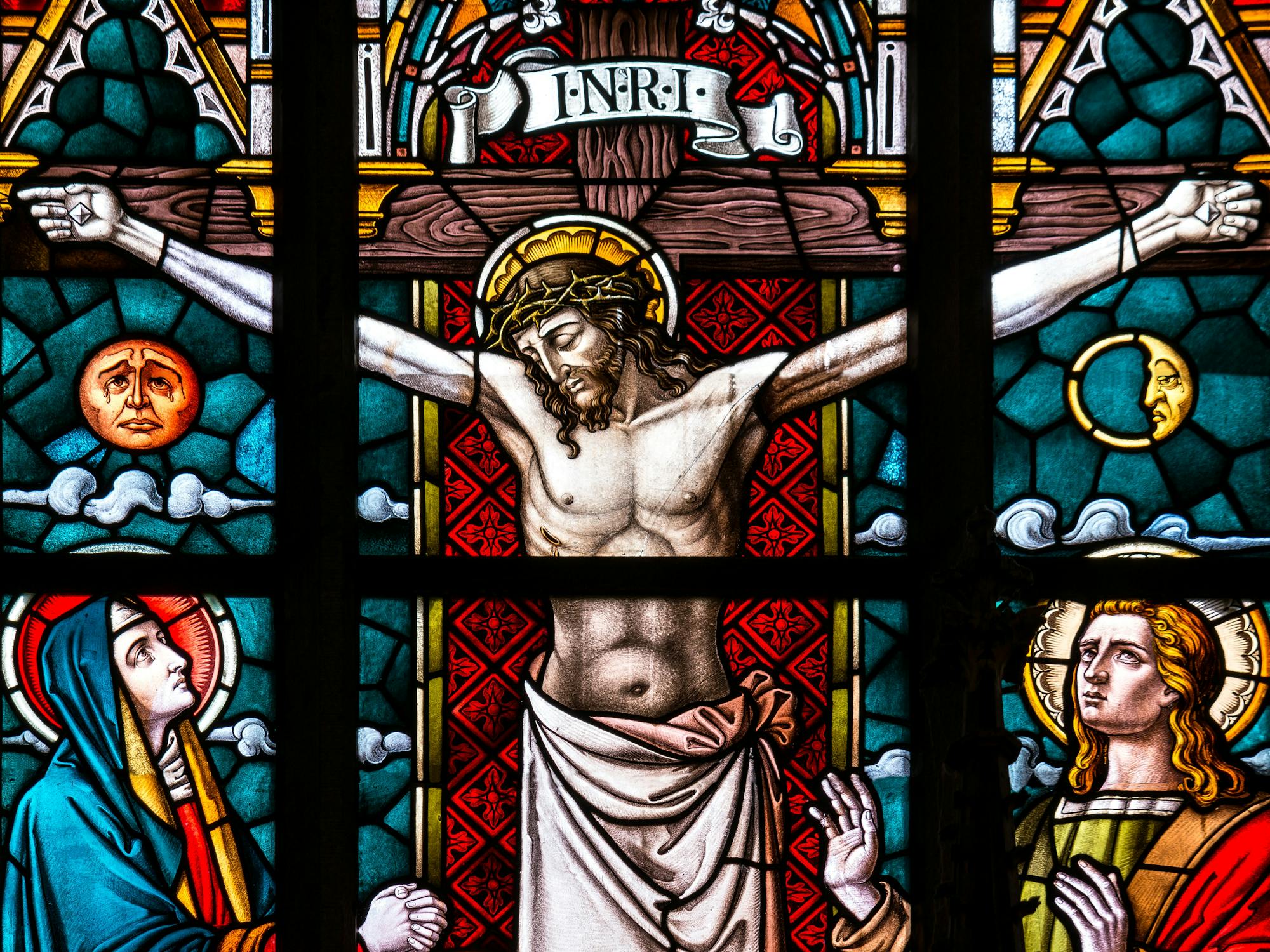The question you’ve posed touches on the profound and central Christian doctrine of the Trinity, which describes God as one Being in three Persons: the Father, the Son (Jesus Christ), and the Holy Spirit. This doctrine is both mysterious and foundational to Christian faith, emphasizing that while each Person of the Trinity is distinct, they are completely united in essence and nature, being fully and equally God.
The imagery of Jesus sitting at the right hand of God the Father, as mentioned in several places in the New Testament (e.g., Mark 16:19, Acts 7:55-56, and Hebrews 1:3), signifies Jesus’ exaltation and authority. It denotes a position of honor and power, reflecting His divinity and His role in the Godhead.
The concept of Jesus being both God and seated at the right hand of the Father can be challenging to understand within our human limitations. It speaks to the relational dynamics within the Trinity, where the Son willingly submits to the Father, even though they are equal in power, glory, and eternity. This is not indicative of Jesus being less than God but rather reflects the unity and diversity within the Trinity.
Hebrews 1:3 states, “The Son is the radiance of God’s glory and the exact representation of his being, sustaining all things by his powerful word. After he had provided purification for sins, he sat down at the right hand of the Majesty in heaven.” This verse, among others, underscores the divine nature of Christ, affirming that He is indeed God, co-equal and co-eternal with the Father and the Holy Spirit.
The Trinity is a key mystery of faith, indicating that while the Father, Son, and Holy Spirit are distinct as Persons, each is fully and completely God. The relational aspect of the Trinity demonstrates how God’s nature is fundamentally about love and relationship—a love that extends to humanity and invites us into a relationship with Him.
How can Jesus be his own Father?
The question you’ve raised touches on a common misunderstanding about the nature of the relationship between Jesus (the Son) and God the Father within the context of Christian theology and the doctrine of the Trinity. According to Christian belief, Jesus is not His own Father; rather, Jesus (the Son) and the Father are distinct Persons within the Godhead.
The doctrine of the Trinity, which is central to Christian faith, teaches that there is one God in three Persons: God the Father, God the Son (Jesus Christ), and God the Holy Spirit. Each Person is distinct, yet they are all of the same essence—fully and completely God.
John 1:1-2 says, “In the beginning was the Word, and the Word was with God, and the Word was God. He was with God in the beginning.” Here, “the Word” refers to Jesus (as clarified in John 1:14), indicating His divine nature and eternal existence alongside the Father.
Furthermore, Jesus speaks of His relationship with the Father in ways that emphasize their distinct Persons but unity in essence. For example, in John 10:30, Jesus says, “I and the Father are one.” This statement speaks to their unity in essence and purpose, not suggesting that Jesus is literally His own Father but that He is one with the Father in nature and divinity.
Jesus also prays to the Father (e.g., John 17), speaks about returning to the Father (e.g., John 16:28), and distinguishes His will from the Father’s, albeit submitting His will to the Father’s (e.g., Luke 22:42). These instances further illustrate the distinctiveness of Persons within the Trinity.
Therefore, in Christian theology, Jesus is not considered to be His own Father. Instead, the relationship between Jesus and the Father is understood within the context of the Trinity: one God in three co-equal, co-eternal Persons, sharing the same divine essence but distinct in their personhood and relationships with each other.





Leave a Reply